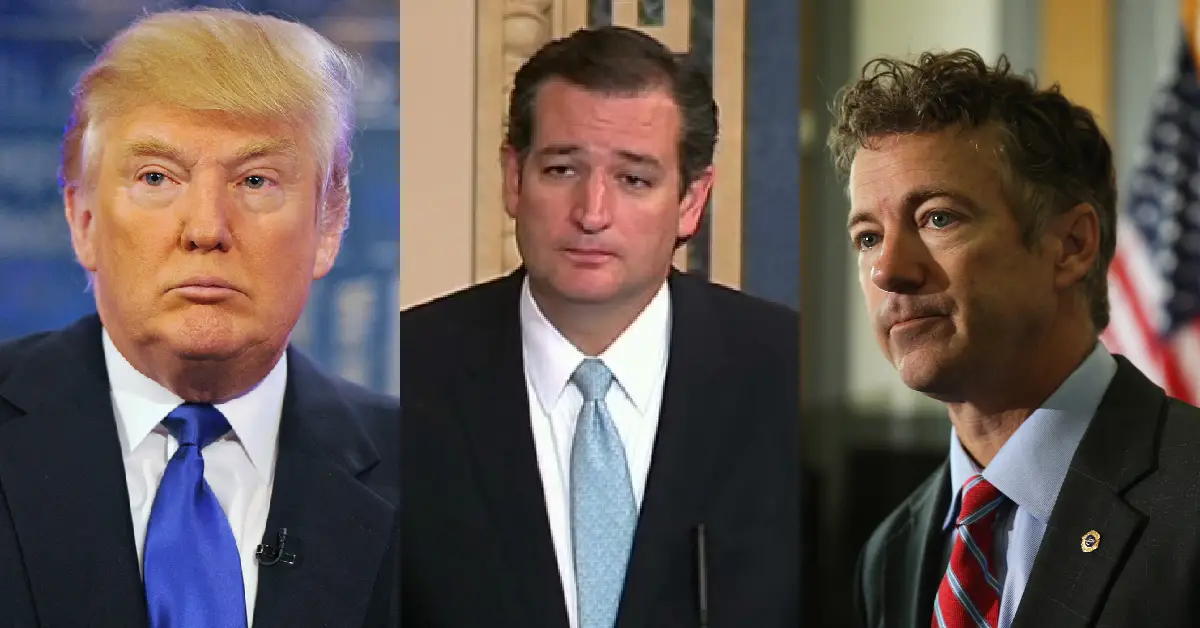If you listened to the GOP debates, you’d think we were destroying our own military. Ted Cruz, in particular, said, “Barack Obama … has dramatically degraded our military.”
Are we spending enough on our military? Our military budget is over a half-Trillion dollars! How does that compare to other countries? Well, let’s check the most recent top 15:
United States–$597.5 Billion
China–$145.8 Billion
Saudi Arabia–$81.8 Billion
United Kingdom–$56.2 Billion
Russia–$51.6 Billion
India—$47.9 Billion
Japan–$41.4 Billion
France–$32 Billion
Germany–$36.6 Billion
South Korea–$33.4 Billion
Brazil–$24.2 Billion
Australia–$22.7 Billion
Italy–$21.5 Billion
Iraq–$21.1 Billion
Israel–$18.5 Billion
As you can see, the United States spends almost exactly as much as the rest of the list – COMBINED. Is that too little? Or too much?
The libertarian Cato Institute thinks it’s WAY too much, and the military is certainly not “dramatically degraded.”
The Dallas Morning News noted that “amounts spent on weapons modernization are about the same as they were when Republican George W. Bush was president.” Meanwhile, to the extent that the military’s budget “is being squeezed,” they wrote, it is because of “the insistence of lawmakers in both parties that money be spent on bases and equipment that the Pentagon says it doesn’t need.”
The Cato Institute goes on to say—
The Pentagon’s base budget, excluding the costs of our recent wars, remains near historic highs. Under the bipartisan Budget Control Act passed in 2011, and as amended in 2013 and late 2015, U.S. taxpayers will spend more on the military in each of the next five years ($510 billion) than we spent, on average, during the Cold War ($460 billion). Those figures are adjusted for inflation. And the actual gap between what we spend now, and what we spent then, will be larger, because the BCA doesn’t cover war costs.
Meanwhile, it isn’t even true that spending under Barack Obama is lower than under George W. Bush. [Even in] inflation-adjusted dollars, military spending – both war and non-war – averaged $606 billion per year during Bush’s two terms in office; under Obama, it has averaged $668 billion. The United States will have spent nearly $500 billion more in the period 2009-2016 than from 2001-2008 ($4.8 trillion vs. $5.3 trillion).
Cruz is hardly a libertarian, but the rest of the candidates (except for the departed Rand Paul) have joined in the call for gigantic increases in defense spending. The Cato Institute disagrees, in “The Truth about Military Spending.”
“Some on the right continue to believe that Pentagon cuts should be off limits, including House Budget Committee Chairman Paul Ryan (R-WI), who argues that the United States should be spending much more on its military.
Rep. Ryan’s budget proposal would have busted the current spending caps to a tune of nearly $50 billion a year for the next decade. This would have amounted to $500 billion more than is currently projected, and around $1.7 trillion more than was spent in the decade following the Cold War. Incredibly, Ryan called for more spending while admitting that “the Department of Defense has repeatedly revised downward its estimates of the budgetary resources necessary to meet the nation’s security objectives.” Think about that: The military says that it does not need additional funding to meet its objectives, yet Ryan insisted that it should receive more money anyway. . .
Americans can and should spend less on the military, because the U.S. military can and should do less, even in the face of what is happening in the Middle East, Eastern Europe, and Asia. And others, especially our wealthy allies in Europe and Asia, can, and probably should, spend more, as illustrated by another Cato infographic.
Cato says increasing the budget is exactly the wrong thing to do. In fact, Cato says we should be CUTTING defense spending.
Despite all the hype about Defense Secretary Robert Gates and his cuts of big-ticket military projects, the Pentagon’s $680 billion budget is actually slated to increase in coming years. This is unconscionable at a time when taxpayers are under enormous stress and when the U.S. government must reduce spending across the board. Barack Obama can save big bucks without undermining U.S. security — but only if he refocuses the military on a few, core missions. . .
If Obama is serious about reducing the deficit and keeping U.S. troops out of “dumb wars,” as he famously dubbed them, he should put his money where his mouth is. Cutting defense spending is the only reliable way to stifle Washington’s impulse to send U.S. troops on ill-considered missions around the globe.
The hawks will scream, but America will be just fine. Obama can capitalize on the country’s unique advantages — wide oceans to the east and west, friendly neighbors to the north and south, a dearth of powerful enemies globally, and the wealth to adapt to dangers as they arise — by adopting a grand strategy of restraint. The United States could shed the burden of defending other countries that are able to defend themselves, abandon futile efforts to fix failed states, and focus on those security challenges that pose the greatest threat to America.
The Republican Party has a number of splits right now. One is the division between fiscal conservatives and Neoconservatives. But among the remaining candidates, there is no fiscal restraint when it comes to military spending. There are no libertarians left.
For the sake of nostalgia, Cato still has this 49-second video clip of Rand Paul commenting on the subject:
Donate Now to Support Election Central
- Help defend independent journalism
- Directly support this website and our efforts
